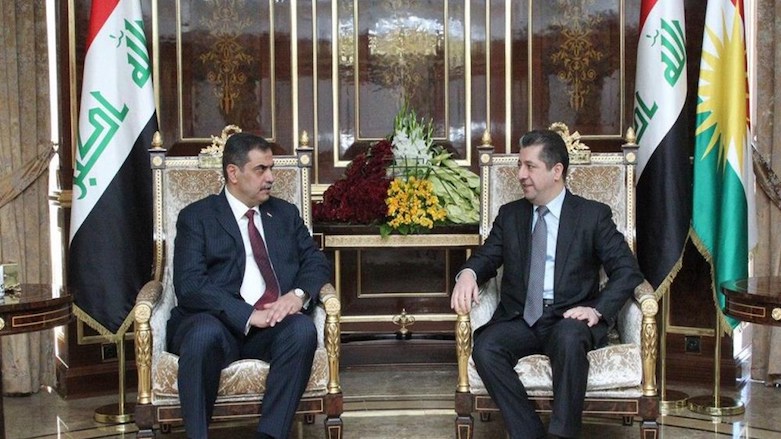Iraqi defense minister meets with top Kurdistan Region officials to discuss security cooperation

ERBIL (Kurdistan 24) – Iraqi Defense Minister Najah al-Shammari met on Saturday with senior Kurdistan Region officials to highlight security coordination and cooperation between the Kurdistan Regional Government (KRG) and the Federal Government of Iraq.
Kurdistan Region Prime Minister Masrour Barzani received the Iraqi minister in Erbil, where the two sides “discussed the latest security situation in the country,” a statement on the KRG prime minister’s website read.
Both sides also emphasized the need for coordination between Iraqi Security Forces (ISF) and the Kurdistan Region’s Peshmerga, especially in the disputed areas between the KRG and Iraq’s central government, the statement added.
“Prime Minister Barzani emphasized that ISIS poses a growing security threat and called for further cooperation between Peshmerga and Iraqi security forces, particularly in the contested areas.”
Meanwhile, Shammari “acknowledged the importance of the Peshmerga in defeating ISIS and expressed his ministry’s readiness for further cooperation and coordination with the Kurdistan Region,” the KRG statement concluded.

Elsewhere, Shammari also met with Masoud Barzani, the President of the Kurdistan Democratic Party (KDP). The two sides discussed the political and security situation and the latest developments in Iraq, according to a statement on the KDP leader’s website.
In the meeting, both sides relayed their concerns about the rise of terrorist activity in Iraq, emphasizing collective understanding and unity in decision making regarding the region’s future.
Editing by Karzan Sulaivany
